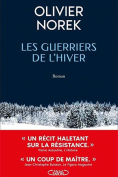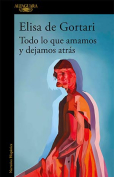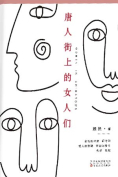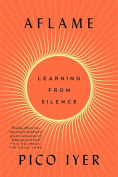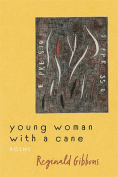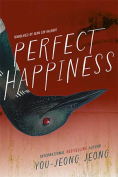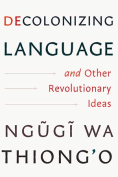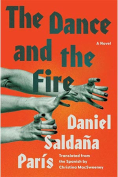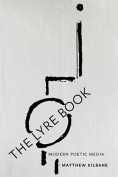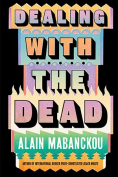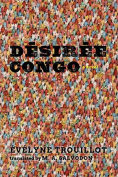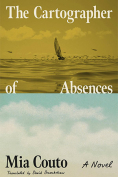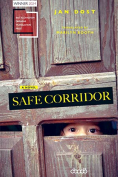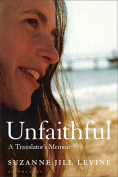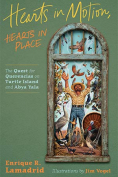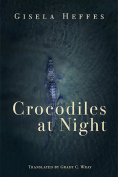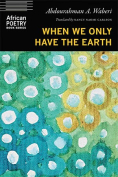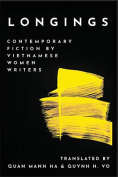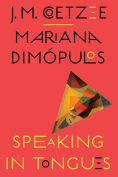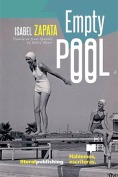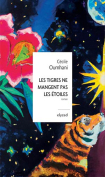Unfaithful: A Translator’s Memoir by Suzanne Jill Levine
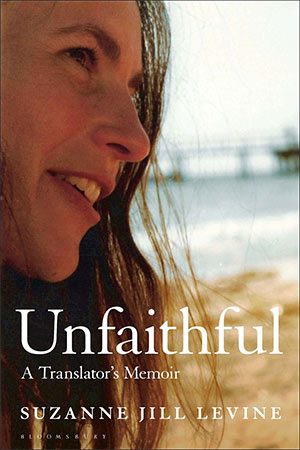
New York. Bloomsbury Academic. 2025. 184 pages.
There’s a peculiar electricity in reading Suzanne Jill Levine’s new memoir when you, too, are a translator of Latin American prose. For me, this isn’t just the story of a remarkable literary career; it’s also the story of a terrain we both know, and of a woman whose path through it has left deep footprints. Levine’s Unfaithful offers a panoramic account of a life lived in and through translation, with all the art, politics, intimacy, and occasional opportunism literary translation entails.
I was fortunate to meet Levine at the American Literary Translators Association annual conference in Tucson in 2023. One evening, I found myself in the hotel bar with her and two other translators. Jill held court like a seasoned raconteur. Funny, warm, and effusive, she was the gravitational center of the table, a translator’s equivalent of a jazz soloist, riffing with irresistible energy. I was in awe.
After reading Unfaithful, I am in even greater awe.
As the subtitle states, Unfaithful is first and foremost a memoir. It is not Edith Grossman’s Why Translation Matters, Kate Briggs’s This Little Art, Jhumpa Lahiri’s In Other Words, or even Gregory Rabassa’s If This Be Treason, although it is closer to the latter than to any of the others. That affinity is no accident: Rabassa—almost single-handedly responsible for the explosion of the Boom—would introduce Levine to the art of literary translation, a journey that would lead her to render into English some of the great figures who defined that movement: Cabrera Infante, Sarduy, Puig, Bioy Casares, Cortázar, Fuentes, Donoso, Borges.
Of all of these, her translations of Puig—Betrayed by Rita Hayworth, Heartbreak Tango, The Buenos Aires Affair (due to a dispute about translator’s rights, she would not translate Puig’s most important—if not most well-known—novel, Kiss of the Spider Woman, for which I applaud her principled stance), and Cabrera Infante—Three Trapped Tigers, Infante’s Inferno—stand out. But what looms large too are her relationships with these writers. And even though I’ve had brushes with great writers—Carlos Fuentes, Miguel Barnet, Andrés Neuman—not to mention a long-standing friendship with Elena Poniatowska, to say I envy Levine’s intimate access to such literary giants would be an understatement. I am grateful, however, to be able to read about them in her personal, firsthand accounts. I cannot image myself at twenty-three “seated as if I were a hyphen between two master dream-weavers, Borges and Bioy, and facing their muse Silvina (Ocampo).”
As the memoir moves through her encounters with these “legendary figures,” it doubles as a history of the Latin American canon in English. Some of the encounters are tender; others have an acid edge. Puig is charming and demanding, Cabrera Infante brilliant but labyrinthine. Levine at times romanticizes these collaborations, or “closelaborations” as Cabrera Infante called them, but how could she not?
Levine’s title, Unfaithful, is both provocation and ars poetica. She means it in the best sense: that to translate is to betray in order to create anew, to be faithful to the life of the work rather than the letter of the text. She recalls working on Cabrera Infante’s Three Trapped Tigers—a book so linguistically slippery it feels like a stress test for translation—and relishing the challenge of inventing a “new literary language in translation.” Whether or not you agree with all her choices (I haven’t, always), you can’t help but admire her contributions not only to the craft of translation but also to the shaping of world literature.
Structurally, the memoir is divided into two parts, the first preceded by a foreword with an intermezzo and entr’acte dividing the two parts, part 1 comprised of six chapters and part 2 of four, followed by an epilogue, an afterword, and various other paratexts. There are, too, eleven photos: of Levine alone; with some of the writers she has translated; and also with lovers, the worldly and erudite Emir Rodríguez Monegal, the Yale professor and literary critic twenty-five years her senior, whom she refers to as a “Latin Svengali” (she refers to herself as his “consort”), Bioy Casares, “debonair and witty . . . the Argentine Cary Grant,” and the Cuban architect-turned-artist Lydia Rubio, with whom she had her first lesbian relationship. The photo I like most is the last, of Levine and a smiling Reinaldo Arenas, the gay Cuban writer and once political prisoner who, in 1990, chose to die by suicide rather than endure an agonizing death from AIDS.
Levine’s style is approachable, almost diaristic. It’s never stuffy or inflated. Like all memoirs, at least all good ones, it’s honest and unsparing, at times tale-bearing. Although published by Bloomsbury’s academic imprint, as part of their new TRANSLATED BY series, “dedicated to promoting translators’ perspectives on their contributions to literary production, networks, and histories,” Unfaithful is not an academic book. You will not find names of translation theorists such as Venuti or Lefevere or Schleiermacher or Benjamin. Nor will you find disquisitions on their theories.
Unfaithful is not Levine’s first foray into memoir. She is also the author of The Subversive Scribe: Translating Latin American Fiction (1991), part memoir, part literary criticism, part translator’s manifesto, which remains a touchstone for anyone attempting to map the theory, politics, and pleasures of translation, and it serves as a natural precursor to Unfaithful, which, in many ways, is its living counterpart, less theoretical, more intimate.
Not only a paean to the art and craft of literary translation, with all its negotiations, risks, and revelations, Unfaithful is also a testament to the richness of the literary life Levine has led and the mark she has left on how English readers understand Latin America. That alone is reason enough to read it. But there’s another: it is, quite simply, a delight—a lively, candid, and intelligent memoir that will make any reader, translator or otherwise, want to pick up the books she has championed.
George Henson
Middlebury Institute of International Studies

